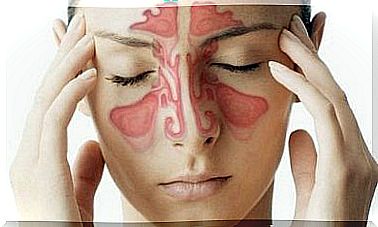5 Unexpected Consequences Of Lack Of Sleep
The older we get, the less sleep we need, but those who sleep too little can have serious health consequences. Adults should sleep at least 6 hours!

The brain and organism can not endure lack of sleep for a long time without consequences.
Temporary insomnia associated with stress or pain has far fewer consequences than chronic insomnia.
Once the difficulty in sleeping has persisted for over three months and the lack of sleep is seriously affecting daily life, you should start worrying about this condition.
The most important thing is to find out what is causing the interference.
Sometimes chronic pain, depression, sleep apnea or a changed biorhythm (e.g. due to working conditions) can be the causes of sleep disorders, which can be treated with various therapies.
It is not recommended to let a long time pass. If you can’t sleep more than three hours straight over a long period of time, you should definitely see a specialist.
Insomnia is not fatal, but it reduces the quality of life and often leads to certain diseases. Then you will learn more about it.
The consequences of lack of sleep
You have probably heard many times that you need 8 hours of sleep to feel fit the next morning.
When talking about exact numbers, we have to be careful. You don’t need the same amount of sleep at the age of 8 as you do at 60. In addition, each person has different needs that they will find out for themselves over time.
- The National Sleep Foundation advises that between the ages of 26 and 64, around 7 to 9 hours of sleep is advisable. From the age of 64, most people sleep less.
- Children should sleep between 9 and 11 hours, as this allows growth hormone to perform important tasks during the night.
However, if you’re wondering when to speak of lack of sleep, the answer is 6 hours of sleep or less.
If you don’t get enough sleep, the body cannot recover and the brain cannot perform important functions properly. The lymphatic system also sees its cleansing activities impaired.
Then we will tell you the most common consequences of insomnia.
1. If you don’t get enough sleep, your intestinal flora changes

Amazing but true. This is the conclusion reached by researchers at the University of Uppsala in Sweden.
- Those responsible for this study have found that people who sleep little over a long period of time have a lower diversity of intestinal bacteria.
Metabolic health is affected when fewer types of microorganisms are present.
- In addition, it should not be forgotten that a disturbed intestinal flora has a strong adverse effect on general health: Insulin resistance can develop, you can gain weight, have a poorer immune system, absorb nutrients more poorly …
2. Insomnia and Diabetes
This is very important: Little sleep affects glucose tolerance. This can lead to diabetes.
- This problem is common among the elderly.
- Even those who are overweight and sleep less than 6 hours are at risk, this is the result of various scientific studies.
3. Lack of sleep affects heart health

Anyone who sleeps three hours less than necessary each day has a very severe impact on heart health. Imagine that you only got between 4 and 5 hours of sleep for three months.
Even if you think that this is “sufficient”, the body suffers from it, especially the heart.
- This increases blood pressure.
- The metabolism is impaired and insulin resistance can occur.
- This promotes inflammation (the heart muscle becomes stiffer because it is under stress).
Numerous studies show that lack of sleep is one of the heart’s archenemies.
4. Insomnia and memory loss
It is not necessary to suffer from chronic insomnia to feel that too little sleep interferes with alertness and makes it difficult to react and concentrate.
- Lack of sleep puts a heavy burden on working memory. If the problem becomes chronic, it can reduce the quality of life.
- Ordinary activities, such as having a conversation, remembering sentences, or finding simple solutions to problems, are severely affected, according to various medical research studies.
5. More stress or anxiety, less sleep. Less sleep, more stress or anxiety.

It is a destructive vicious circle. Stress and anxiety disrupt sleep, but if the problem becomes chronic, the situation becomes even worse.
Body and mind are closely related, constant lack of sleep brings us out of balance and leads to overstimulation.
In this case you should definitely consult a specialist in order to restore your sleep quality.
Don’t forget the popular phrase: “Sometimes the solution to all evil lies in a good night’s sleep.”









